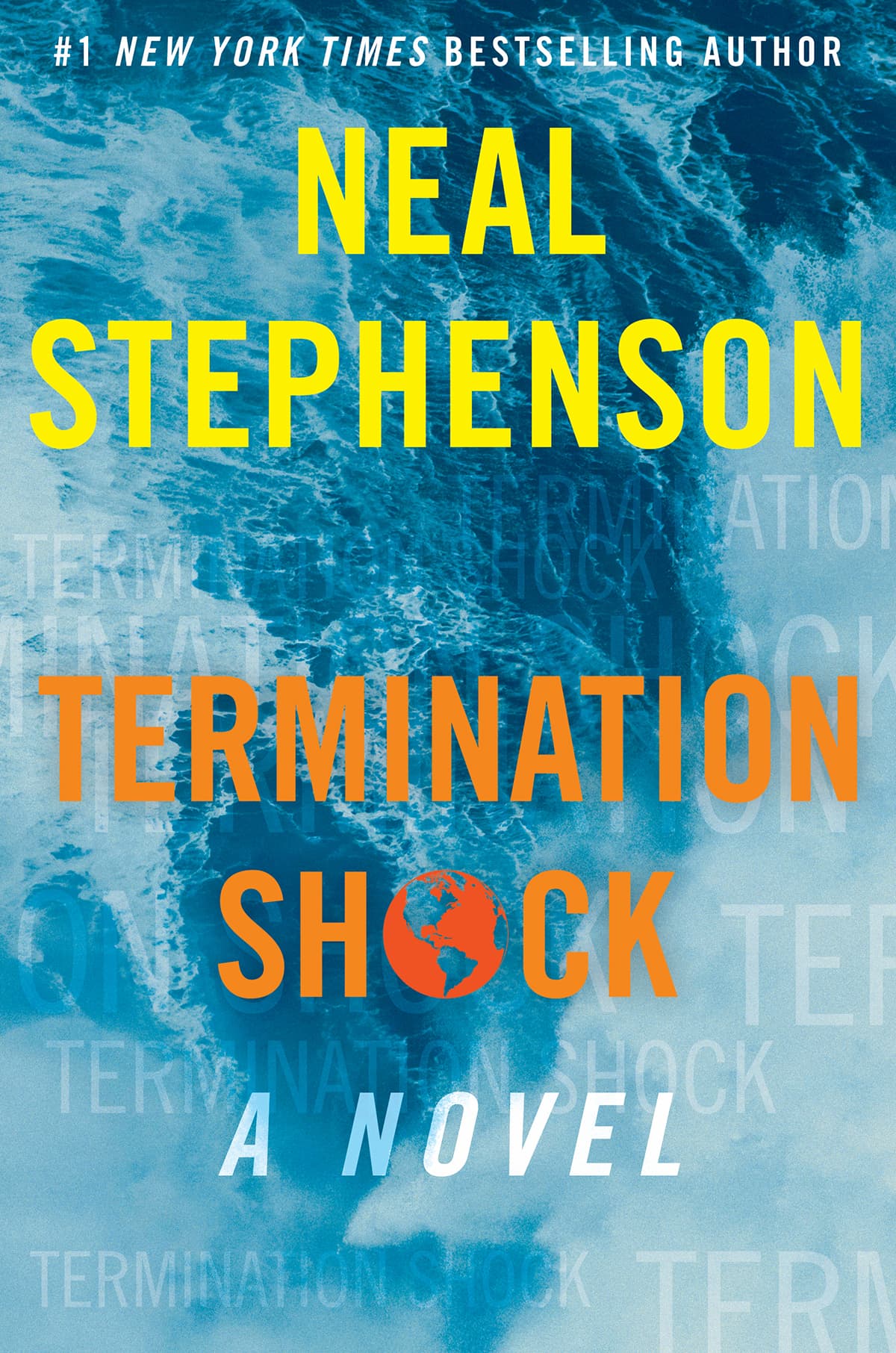Hardcover, 896 pages
Published Nov. 15, 2021 by William Morrow.

Hardcover, 896 pages
Published Nov. 15, 2021 by William Morrow.
Termination Shock takes readers on a thrilling, chilling visit to our not-too-distant future – a world in which the greenhouse effect has inexorably resulted in a whirling-dervish troposphere of superstorms, rising sea levels, global flooding, merciless heat waves, and virulent, deadly pandemics.
One man has a Big Idea for reversing global warming, a master plan perhaps best described as “elemental.” But will it work? And just as important, what are the consequences for the planet – and all of humanity – should it be applied?
Termination Shock sounds a clarion alarm, ponders potential solutions and dire risks, and wraps it all together in an exhilarating, witty, mind-expanding speculative adventure.